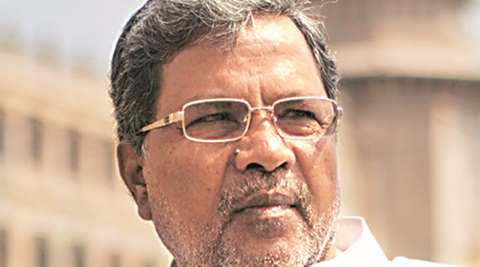 Union Finance Minister Arun Jaitley. PTI Photo
Union Finance Minister Arun Jaitley. PTI Photo
Union Finance Minister Arun Jaitley believes the economic reforms of 1991 “happened not because of the Congress but in spite of the Congress” and he credits “the Narasimha Rao-Manmohan Singh combine” for seizing the opportunity of taking steps to integrate India with the rest of the world.
In an interview to The Indian Express as part of its series on 25 years of economic reforms, Jaitley said that in 1991, when India was faced with a balance of payments crisis, China’s economy had already started turning around after rejecting the old growth model which they had pursued for decades.
Also Read | Reforms mean empowerment of poor. We have most successful financial inclusion programme: Arun Jaitley
“The buzzword was increasingly going to be — which it did indeed become — that if China can do it, why can’t India, because in terms of population, poverty levels, we were closer to them… It goes to the credit of the Narasimha Rao- Manmohan Singh combine that they seized this opportunity, not because of the Congress, but in spite of the Congress,” he said.
“…when Dr Manmohan Singh says that at times he felt almost isolated, we must respect his word… after the initial reforms, Congressism struck back at them… Congress almost had a guilt complex about what the Rao-Singh combination was doing,” he said.
 Reforms mean empowerment of poor. We have most successful financial inclusion programme: Arun Jaitley
Reforms mean empowerment of poor. We have most successful financial inclusion programme: Arun Jaitley IB gave Narasimha Rao list of Congmen, ministers against 1991 reforms
IB gave Narasimha Rao list of Congmen, ministers against 1991 reforms Jairam’s new book: ‘Manmohan deposited gains made from rupee devaluation in relief fund’
Jairam’s new book: ‘Manmohan deposited gains made from rupee devaluation in relief fund’ Jaitley showers praise on Manmohan, says 'PM goes out with dignity and grace'
Jaitley showers praise on Manmohan, says 'PM goes out with dignity and grace' At Narendra Modi book release, Arun Jaitley praises Narasimha Rao reforms
At Narendra Modi book release, Arun Jaitley praises Narasimha Rao reforms- No fixation with Swadeshi,BJP for reforms: Jaitley
Watch Video | BJP Reaches Out To Congress To End GST Stalemate
Jaitley said that while the United Front, which succeeded the Congress government in 1996-97, took forward some of the reforms, especially in the Budget presented by P Chidambaram as Finance Minister in 1997, the NDA government which followed had no qualms about reforms unlike the Congress.
The Vajpayee government, he said, took bold decisions such as moving towards revenue-sharing in the telecom sector which led to a major transformation. “I used to see him (Vajpayee) in cabinet meeting after cabinet meeting, when the debates between for-and-against reforms took place… he allowed the debate to go on, and in the end, his nod was normally on the side of reforms. He brought in the idea of privatisation… he gave big ideas: infrastructure, setting up regulators, which started helping.”
Also Read | Congress will support bills on basis of merit: Ghulam Nabi Azad
He said the NDA II, now in office, has the political advantage of numbers and has a Prime Minister who is decisive and oriented towards reforms. This government, he said, has a full agenda. “If we continue to do what we have planned, we will take the whole five-year term to do it.”
He said that in the last couple of years, the government has opened the economy further with a series of reforms while eliminating corruption and creating an environment where people pay taxes than avoiding it, providing stability on the tax front, rationalising subsidies and focusing on infrastructure. “It is still work in progress,” he said.



























